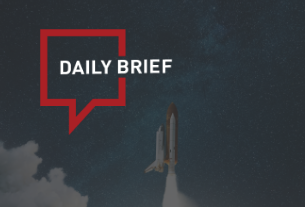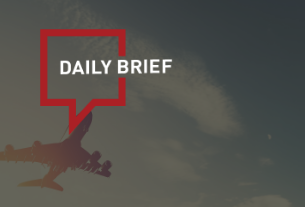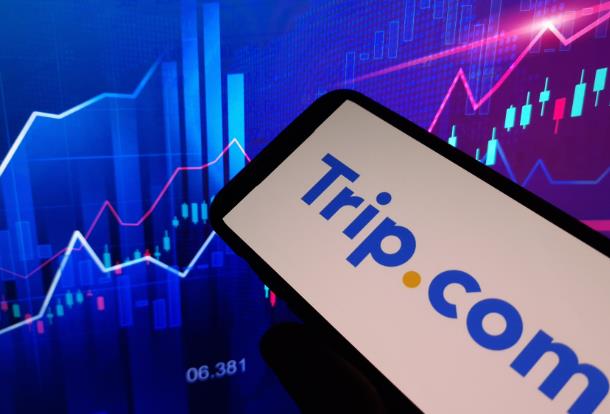TripAdvisor’s new instant booking function is many things, but being instantly understandable isn’t one of them. The technical aspect is straightforward. But the business implications are not.
Currently in beta in the US, TripConnect Instant Booking is a way for all suppliers to load inventory into TripAdvisor’s hotel metasearch.
This week, TripAdvisor posted a hit on its earnings. That financial hit was partly attributable to the early costs required for getting instant booking up and running, say some analysts, though the company did not itself say so.
To gain insights into instant booking, Tnooz talked to a dozen industry experts, some of whom requested to remain anonymous.
We’ll tackle a few key aspects of instant booking, such as its changed advertising model to click-per-action, why independent hoteliers may be wary while regionals embrace it, Tingo’s surprise role, why online travel giants are staying away, and what kind of display buttons TripAdvisor is testing.
Bidding for trouble?
TripAdvisor’s Instant Booking lets hotel chains, independents, B&Bs, and online travel agencies (OTAs) use an auction bidding tool to fight over the coveted top spots in its metasearch results.
Consumers see a difference, too. For any given search result, the topmost button of three hotel rates may be large and in gold and say “Book with TripAdvisor.”
Users who click the button will be encouraged to submit their credit card information while remaining inside TripAdvisor’s “user interface shell”.
The transaction process is completed on behalf of TripAdvisor by third parties. In Tnooz’s tests for global hotel searches, we’ve seen results powered by the independent online travel agencies Getaroom and Amoma as well as the global distribution system Travelport.
Before this launch, travelers who ran searches for hotels on TripAdvisor’s metasearch tool saw three potential room rates at a time. Each button displayed a price and the label of a third party, like Booking.com. He or she would click to the OTA to complete the transaction.
The rollout of TripConnect Instant Booking in the US is slow, so most metasearch results are on this older model still. But it’s ramping up, and now’s the time to understand it.
Replacing CPC with CPA
The hotel industry is still digesting the news that TripAdvisor is using a click-per-action (CPA) model in its auctions for the top, instant booking result.
Since the summer, the company has been testing to see how CPA plays against its standard cost-per-click (CPC) model.
A TripAdvisor spokesperson explained the cost model to Tnooz this way:
“TripAdvisor began including a commission based “bidding” model for all partners who participate in instant booking when it launched the feature in June.
Partners (online travel agencies, hotel chains, global distribution system, etc.) wishing to participate in instant booking bid via a submission of a commission percentage they are willing to pay for the transaction.
To clarify, in the standard metasearch model, partners bid via a cost-per-click (CPC) value for each click that a user makes on their link.In the instant booking model, partners pay TripAdvisor a percentage of the booking value for completed transactions.
During last three months of 2014, we will be rolling out TripConnect with instant booking for independent hotels and B&Bs and the same commission percentage model will apply.”
The Massachusetts-based company could use the instant booking technology to support a variety of business models, meaning, different fees and types of auctions.
For simplicity in this article, we’ll talk about Instant Booking and the company’s experiments with a CPA model as if they are one and the same thing. After all, the connectivity is only valuable if the business model behind it works.
You could even argue that the CPA model is a must for the Book with TripAdvisor button. One employee of an internet booking engine told Tnooz confidentially:
“It would be unfair of TripAdvisor to charge CPC if the guest does not leave its platform to book, because of the lost branding and upsell opportunity because the hotel’s name doesn’t appear.”
Adopting an “OTA Lite” model
The CPA model is quite similar to what OTAs charge hotels: a fee per transaction, paid after a guest’s stay.
For a hotel owner, this model can have advantages. The CPA fee can be tracked to an actual stay, so the hotel owner is paying for real revenue. Says Flo Lugli of Navesink Advisory Group:
“Many hotels don’t have the budgets to compete in the CPC model with the big OTAs, but they are more than willing to pay for actual bookings, even at a slightly higher commission.”
Over time, as long as the effective cost to a hotel brand is at least two percentage points less than the OTA model of distribution at a CPC rate, hotels are likely to experiment with it, according to an executive at a regional US hotel chain.
Another thing: Unlike most other travel website “instant booking” options, TripAdvisor’s auction model is making it affordable for independent properties and small chains to compete against other travel websites.
A percentage game
Two people working for internet booking engines told Tnooz confidentially that the instant booking CPA auctions will be set at a 12% minimum when they go live with mid-tier hotel chains. The cap, to start, is 15%.
The commission doesn’t include the transaction fees of the booking engines, which could bump it up a bit.
Guilain Denisselle, a hotel industry analyst for TendanceHotellerie.fr, games out the incentive structure of the CPA model in this way:
“On today’s CPC model, the cost of acquisition for an independent property in Europe is between 8% and 10% when the hotel is doing things properly — and sometimes less, depending on the period.
However many hotels have an acquisition cost on metasearch between 12% and 15%.
By doing right things, they might save a couple of percentage points using the new CPA auction model.
A CPA of between 8% to 12% would be reasonable for TripAdvisor. By reasonable, I mean, it would not be too high to kill its CPC business with OTAs unintentionally.”
Cheaper than CPC
TripAdvisor takes an 13% commission on metasearch, estimates the investment bank Cowen.
That’s an approximation, on an effective basis, because the ads are being priced in clicks (CPC). It is based on an estimate that for every $13 in bookings OTAs spend on TripAdvisor metasearch ads they get roughly $100 in bookings, on average.
If hotels want to compete for the top slots in metasearch, they have to pay an effective 13% commission, too.
That’s cheaper than what a hotel may pay for a customer that comes from a third-party like Booking.com, typically 15%.
Even cheaper is a booking via TripAdvisor’s instant booking. A hotel might pay only 10% for it, once the market is working well next year.
Even if a hotel may bid for only a third-place position in TripAdvisor’s ordinary CPC metasearch ads and even if they may manage that to a really low commission rate on an effective basis, the instant booking option could seem attractive.
But there are risks. Notes Cindy Estis Green of the consultancy Kalibri Labs:
“I might say CPA is generally better as a model for a hotel to improve their cost management, but I would never suggest its worth paying slightly higher rates to get a CPA model.”
Similarly, Robert Cole of the Rock Cheetah consultancy points out that 10%, while cheaper than an OTA-sourced booking and some types of metasearch, may still not work very well for hotels who would still serve as the merchant of record and bear any service costs related to the booking. Says Cole:
“While hoteliers would like to pay 33% less compared with an OTA, they also don’t want to overpay for something that was supposed to be a bid-based product.
It’s not the hotels’ fault if the newly created marketplace is inefficient from a revenue optimization perspective.
If the CPAs are high, that’s a shame – the model won’t work for anybody and what could have been a quality, and more cost effective, source of traffic for hotels (and maybe OTAs too) will wind up being grossly underutilized.”
Large OTAs stay on the sidelines
The two major online travel agency groups Expedia Inc and Priceline Group are estimated by Wall Street analysts to spend 12% to 13% of their total advertising budgets on TripAdvisor.
Yet they have steered clear of participating in the company’s new Instant Booking in a direct relationship.
On 30 October, Expedia Inc CEO Dara Khosrowshahi said in a quarterly conference call that, even if TripAdvisor increased its traction with Instant Booking, his company will stay away. He explained:
We are anticipating some headwinds on the top line because of that as TripAdvisor rolls out Instant Book more expansively, we will have less access to TripAdvisor clicks, so to speak, but we certainly think that’s manageable.
And in general, TripAdvisor is one of our less profitable channels.
He also said that in the third quarter, Trivago, its recently acquired metasearch platform, delivered more clicks to brand Expedia than TripAdvisor did.
Perhaps years from now, Expedia and Priceline will change their mind and be lured into TripAdvisor’s Instant Booking. This might be done on a volume deal — the OTAs could get their listings posted for only around, say, a 5% CPA, while others have to pay, say, 10% CPA or higher.
One analyst says such a deal would give an unfair advantage to OTAs, which might cause trouble with its hotel customers,.
Another analyst, Cole, summarizes the big picture this way:
“The key for TripAdvisor is to enable a bidding environment where an equilibrium can be attained that works for both the hoteliers and OTAs on a bid/CPA basis.”
Cole elaborates that, in the US, if an OTA would have gotten a 15% commission on a hotel booking direct through its own brand, but when the lead comes through TripAdvisor it is paying 10% commission for a typical instant booking lead, that’s not attractive.
To drill down to a deeper level, the problem may be less that the OTA is worried about a 66%/33% revenue share, because they often show a willingness to pay nearly as much for metasearch ads.
The problem may instead be that OTAs are worried about contributing to the “Book with TripAdvisor” phenomenon. OTAs consider instant booking significantly less valuable to them than metasearch leads because they want to lure customers to become direct bookers and do repeat direct business with their brand.com websites.
So OTAs suspect they’ll have a lower customer lifetime value from a certain percentage of leads via instant booking because their branding has been stripped from the “Book with TripAdvisor” functionality.
Beyond the return-on-investment metrics, there’s a business strategy risk, too. If TripAdvisor wants to be an OTA-lite, doing all but provide customer service, OTAs do not want to help a competitor grow.
A rival crew may be good for hotels
On the flip side of the coin, hotel owners — many of whom feel frustrated by how much money they spend on third-party distribution — may welcome having a third competitor to break up the Expedia/Priceline duopoly.
By participating in instant booking, they are displacing reservations that would have come in via an OTA otherwise, therefore helping improve competition on commissions and increase their leverage against the intermediaries.
Regionals to like it better than independents
This autumn, independent hotels and B&Bs have begun to appear in the listings, which up until now have been reserved for chains.
This week, the company said that it had certified 31 hotel connectivity providers to offer TripConnect instant booking.
Independent hotels may be slow to adopt instant booking and the TripConnect functionality that underlies it.
Logistically, it’s one thing to do the APIs for rates and availability, but it’s different when you have to APIs that have to push back and inject reservations into their customer relationship management systems.
To help with the integration, TripAdvisor poached Lew Harasymiw from Sabre Hospitality Solutions to be its director of connectivity solutions and find creative solutions to the technical hurdles.
In contrast, mid-size and large chains don’t face the logistical problems of adoptions that independents have. They may be eager to sign up.
Two large, household-name hotel chains in Europe are adding instant booking functionality, according to the two internet booking engines that are setting up those connections and who spoke with Tnooz confidentially.
Plus, it’s generally cheaper for larger chains to get leads via TripAdvisor’s new model than via the OTAs, making the channel attractive. TripAdvisor may also, in the short term, give them incentives to play with the auctions.
During testing, initial partners Best Western and Choice Hotels may be enjoying a floor as low as 6%, according to Bank of America Merrill Lynch research.
Tingo gets its wings
In the meantime, TripAdvisor is securing most of its Instant Book inventory from the OTAs via an OTA it owns, Tingo, which is a member of the Expedia Affiliate Network (EAN).
Tingo has been misunderstood and underestimated, it seems.
Its public face is as a consumer service that offers prepaid guests refunds when room rates drop before their arrival dates.
Tingo had been written off by some in the trade because that service hasn’t caught fire with consumers, according to Web analytics services like Similar Web.
Yet Tingo, which is powered by the Expedia Affliate Network (EAN), plays a central role in kickstarting Instant Booking. The reason? Big OTAs won’t play ball with TripAdvisor directly, so Tingo accesses the inventory OTAs would have otherwise supplied.
In fact, Expedia may be a secret, brief winner.
Tingo bookings involve an estimated 50% revenue share with EAN, much cheaper than the leads Expedia Inc acquires for its own brands on TripAdvisor, which vary but are typically 20%, estimates investment firm Cowen & Company.
On the other hand, bookings driven by Tingo are typically of lower quality, given they may not lead to loyalty or repeat customers for Expedia.
Tingo is not the only provider TripAdvisor uses, but it does seem to be processing the bulk right now.
The “Book with TripAdvisor button”
Adding a layer to these changes is how the results are being presented to consumers. TripAdvisor is using A/B testing, and some of its experiments with instant booking are surprising.
Cowen analyst Kevin Kopelman recently said:
We have seen two versions of TripAdvisor’s Instant Book test on desktop/tablets: one that preserves a large gold box for a traditional metasearch ad in search results, and one surprisingly aggressive variation that does not.
While an aggressive rollout of “Book with TripAdvisor” could mildly hurt revenue short-term, it will likely be viewed positively for TripAdvisor as accelerating its business model transition.
Tnooz has also seen one big metasearch ad with smaller ones underneath it, with two gold boxes for Book with TripAdvisor. Sometimes there’s just one gold box. The area with gold varies in the testing.
Kaufer’s alpine climb
In summer 2014, TripAdvisor expanded Instant Booking from its desktop site to its mobile site and mobile apps.
Independents can get instant booking customers via mobile now, too. (Staying on-site in a responsively designed booking form is considered important for increasing conversions by users of mobile devices.)
It’s a gamble. Moving to metasearch upset the markets because it was difficult to smooth out the earnings hit. The adoption of instant booking is less turbulent, but still bumpy.
CEO Steve Kaufer, who earned $39 million last year, will next work to ink partnerships with as many hotel brands as possible. Speed will win here, most likely.
In the meantime, it won’t be easy for TripAdvisor. Kevin Kopelman, an analyst at investment bank Cowen & Company, says:
“We feel confident that instant booking via CPA is making TRIP less money than an equivalent meta advertisement at a CPC would. The reason is the marketplace isn’t working well yet.”
Kaufer has put his reputation on the line with this project, which he describes in quarterly earnings calls as a multi-year effort.
It’ll be interesting to see how many years of those it’ll take before TripAdvisor’s shift from being a reviews site to being an OTA-lite is widely grasped.
Read original article




